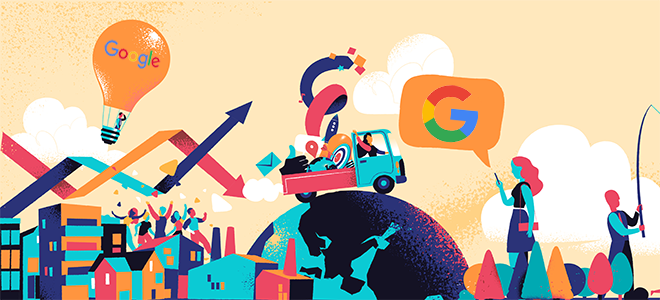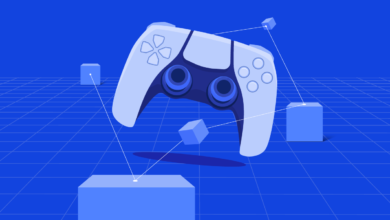InnovationTechnology in the Law ClassroomTechnology Law / Cyber Law
The Antitrust Era: Redefined

The following article is the first part of a series of critique of the Antitrust laws, and how they have shaped the modern-day tech scene.
How big is really too big? How does the ability of the gigantic conglomerates and empires in the various industries to acquire or crush any rival, affect the economy and the society? How does one, regulate a company that’s becoming something more than itself, or roughly said, a whole market, or rather, an economy within itself? Basically, what should be done to avoid such a crisis?
Remember the days when you went out and socialized. When you didn’t have your Nintendos and Xbox’ and Playstations looming around. Yeah, those days. Where life was much more than your social media page, and your personal data was, literally, and I mean literally, yours. With the booming advent of companies like Alphabet Inc. owned Google, and the much mischievous Facebook, Inc., and our lives revolving around the said companies, the motive to become a platform for everyone for everything, is creating a monopoly, that was previously unheard of. But that’s what antitrust is for, isn’t it? To prevent smaller companies from getting exploited by their big fat counterparts. To further prevent such monopoly, from disturbing the market dynamics. The answer to the aforementioned question can be conflicting and has often left various jurists and critiques in a state of dilemma. Antitrust Laws have been in place for the whole of the past century or so, but never has its need been felt more, than now. The Big 5 of Google, Apple, Facebook, Amazon, and Microsoft, seem to be killing market competition, and the foreseeable future, doesn’t look so good. Antitrust seems to be the only beacon of hope left, and breaking down of the aforementioned companies, looks like the only feasible solution.
But why are we talking about the Antitrust era being redefined? There have been cases of Antitrust before, and it has shaped the world economy as we see it today. But, for the past decade or two, the Antitrust law has seemed redundant. So, for understanding the current momentum gained by the Antitrust motions, it’s important that we relate the current situation to similar cases, which have occurred in the past. And the most landmark and revolutionary of the said cases would definitely be the antitrust motion, filed by Netscape against Microsoft. In the mid-90s, Microsoft was the biggest tech conglomerate, and Bill Gates, the most powerful and influential personality the world knew. Microsoft had all fronts covered. Its Windows operating system was an instant and worldwide success. Its professional suite of products had taken the world by storm. The only front Microsoft was lagging behind, was the field of World Wide Web, or as we know it today, the Internet. Bill Gates had recognized the power the Internet had, and the importance it would hold in shaping the future. Netscape, on the other hand, was already a market leader in the said field. So, Bill Gates went all out, and launched a full-fledged attack against it, attempting to smother it by bundling its own free Internet Explorer browser with Windows and pressuring other companies to use it instead of Netscape Navigator. This is where Antitrust came in. Netscape took the ground that if a service like Windows, established so much monopoly in the market, such that it won’t even allow other companies to enter to compete, even if their products were superior, then not only will the market decline, the technological innovation would also seemingly stall. The same was true too, for the most part. Microsoft had moved into every corner of the internet market. It had captured Comcast, WebTV and essentially crippled WordPerfect, which was competing with its office line of products. Though the proceedings went long enough, such that Netscape couldn’t be saved, when the decision ultimately came out, the Justice Department, came out all guns blazing. They found Microsoft guilty of violating antitrust laws and ordered the company to be split up. However, that didn’t happen, partially because of the influence Bill Gates had, and partially because the order was later overturned and replaced by a more subtle settlement, involving Microsoft lifting some barriers on the third-party software on Windows.”Even without a split, the Microsoft settlement is credited with giving web companies like Google — and browsers like Google Chrome, which overtook Internet Explorer in 2012 — space to grow.”Similar was the case with AT&T, which was indeed split up over its immense telecom monopoly. Such battles are the only reason, why we even have companies like Google, Facebook, and Amazon in the first place because none of the abovementioned companies were allowed to establish a monopoly over the Internet. The Internet was given the space to grow, and in its aftermath, as we know, it has often been deemed as one of the most important innovations of the last century or two. All thanks to Antitrust.
But how have these wars shaped the current Antitrust debates we are having? How have the organizations like the European Union and the Federal Department of Justice and Trade, took inspiration from the aforementioned battles to whiplash the Big 5? Why has the demand to break down Facebook, gained the maximum momentum, it ever has?
All this and more, in the next part of this series on ‘Antitrust and our Future’. Stay Tuned.
References:
- Miller, S., & Segal, D. (2018, October 5). Break up Facebook: Latest hack proves it’s a dangerous monopoly that a fine won’t fix.
- Robertson, A. (2018, September 6). How the antitrust battles of the ’90s set the stage for today’s tech giants.
- Ezrachi, M. E. S. A. (2017, December 15). The Rise, Fall, and Rebirth of the U.S. Antitrust Movement.
- Bonifacic, I. (2019, September 13). US asks Apple, Google, Facebook and Amazon for docs in antitrust probe.
Image Source: https://ischool.syr.edu/infospace/2018/07/25/antitrust-innovation-google-competitors/





1 thought on “The Antitrust Era: Redefined”